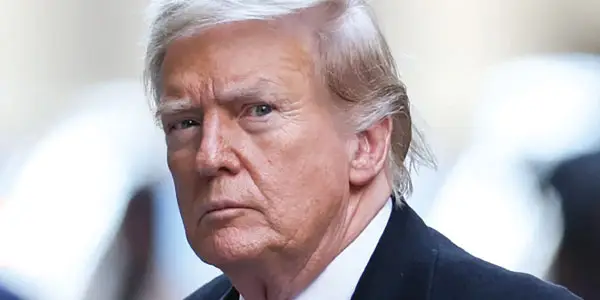
Seven weeks ago today, Russia invaded Ukraine. Despite deploying some 200,000 heavily armed troops and mercenaries, Russia has destroyed cities and civilians, but the world’s largest country has failed so far to take the Ukrainian capital of Kyiv and overthrow the government of Ukrainian President Volodymyr Zelensky. And as of Monday, Ukrainian forces were reclaiming areas around the capitol, forcing a withdrawal of Russian troops from the vicinity.
Even with setbacks though, Russia has managed to get control of much of eastern Ukraine. The news late Monday was that the southeastern cities of Mykolaiv and the prize port city of Mariupol were besieged by intense ground fighting and airstrikes. Moreover, Russian troop movements suggested preparations for “an intensified assault” on the region, according to Ukrainian officials.
Most of the world has condemned the aggression against Ukraine and vilified Russian President Vladimir Putin with a few questioning his sanity. The U.S. and the European Union are imposing increasingly hard-hitting sanctions on Russia. But as of Monday, peace talks had failed to make substantial headway, and evidence of Russian atrocities in Ukraine mounts daily.
Why did Putin choose to invade Ukraine at this time, and why isn’t he deterred by the economic sanctions?
In talks with the Azerbaijani president in late February, Putin emphatically denied that he was seeking to “restore the (Russian) empire … This is absolutely not true,” he declared. So is his motive to restore the Soviet Union? He considers its demise “the greatest geopolitical catastrophe of the century.” Does he want to put Ukraine beyond the influence of America and its European allies or discourage Ukraine’s NATO membership ambitions?
Assailing Putin’s sanity and character won’t help peace negotiators to understand his motivations, warn former American diplomats. And without understanding, successfully negotiating a peace agreement will remain elusive.
And the reasons why Russia seems impervious to draconian sanctions? Is the country of 146 million people really “self-sufficient in food, energy and armaments,” as has been suggested?
How long can Ukraine hold out against Russia? Are the sanctions being imposed by sympathetic nations having any positive effect? What will ultimately bring about sovereignty and peace for Ukraine?
Soberanía y paz para Ucrania
Hace siete semanas, Rusia invadió a Ucrania. A pesar de desplegar unas 200,000 tropas y mercenarios fuertemente armados, Rusia ha destruido ciudades y civiles, pero el país más grande del mundo no ha logrado hasta ahora tomar la capital ucraniana de Kiev y derrocar al gobierno del presidente ucraniano Volodymyr Zelensky. Y a partir del lunes, las fuerzas ucranianas estaban recuperando áreas alrededor del capitolio, lo que obligó a las tropas rusas a retirarse de los alrededores.
Sin embargo, incluso con reveses, Rusia ha logrado hacerse con el control de gran parte del este de Ucrania. La noticia del lunes por la noche fue que las ciudades del sureste de Mykolaiv y la preciada ciudad portuaria de Mariupol fueron sitiadas por intensos combates terrestres y ataques aéreos. Además, los movimientos de tropas rusas sugirieron preparativos para “un asalto intensificado” en la región, según funcionarios ucranianos.
La mayor parte del mundo ha condenado la agresión contra Ucrania y ha vilipendiado al presidente ruso, Vladimir Putin, y algunos han cuestionado su cordura. Estados Unidos y la Unión Europea están imponiendo sanciones cada vez más duras a Rusia. Pero hasta el lunes, las conversaciones de paz no lograron avances sustanciales y la evidencia de las atrocidades rusas en Ucrania aumenta a diario. ¿Por qué Putin eligió invadir Ucrania en este momento y por qué las sanciones económicas no lo disuaden?
En conversaciones con el presidente de Azerbaiyán a fines de febrero, Putin negó enfáticamente que estuviera buscando “restaurar el imperio (ruso)… Esto es absolutamente falso”, declaró. Entonces, ¿su motivo es restaurar la Unión Soviética? Considera su desaparición como “la mayor catástrofe geopolítica del siglo”. ¿Quiere poner a Ucrania más allá de la influencia de Estados Unidos y sus aliados europeos o desalentar las ambiciones de membresía de Ucrania en la OTAN?
Atacar la cordura y el carácter de Putin no ayudará a los negociadores de paz a comprender sus motivaciones, advierten exdiplomáticos estadounidenses. Y sin comprensión, la negociación exitosa de un acuerdo de paz seguirá siendo difícil de alcanzar.
¿Y las razones por las que Rusia parece impermeable a las sanciones draconianas? ¿Es el país de 146 millones de personas realmente “autosuficiente en alimentos, energía y armamentos”, como se ha sugerido? ¿Cuánto tiempo puede aguantar Ucrania contra Rusia? ¿Están teniendo algún efecto positivo las sanciones impuestas por naciones simpatizantes? ¿Qué traerá finalmente la soberanía y la paz para Ucrania?









